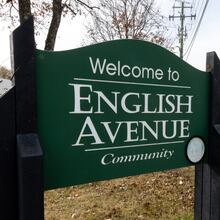COMMON SCAMS TOWARD ELDERLY
- Medicare fraud: Callers try to sell fake supplemental health care. They ask for Social Security numbers or other personal information.
- "Grandparent" scams: Callers pretend to be relatives asking for a loan or some type of financial help.
- Affinity marketing: Callers pretend to be a trusted organization, like the AARP, and ask for personal information or a donation.
- Fake debt collection: Callers claim that the consumer owes a debt and demand account information.
HOW TO FILE A COMPLAINT
If you suspect you have been the target of a scam or a victim of identity theft, file a formal complaint with one of the following agencies:
- The Federal Trade Commission: 1-877-382-4357, ftccomplaintassistant.gov
- HHS Office of Inspector General (Medicare Fraud): 1-800-447-8477, oig.hhs.gov
Source: Georgia Watch
INDICATORS OF FINANCIAL EXPLOITATION
- Elder doesn't know what happens to his or her money.
- Checks no longer come to the house.
- Unexplained disappearance of funds or valuables.
- Elder reports signing papers and doesn't know what was signed.
- Transfer of property, savings.
Source: Cobb County Elder Abuse Task Force
Good cheer aside, the holiday season also can bring financial scams directed at the most vulnerable population — senior adults.
There’s a heightened awareness right now for those charged with protecting the elderly and educating them about such abuse. And as older adults have taken to the Internet, these schemers are now targeting their victims online, too.
Cobb County District Attorney Vic Reynolds said criminals know that seniors as a population are more inclined to shop online during the holidays, and that they are more trusting and less technologically savvy than younger generations.
“These factors aid criminals when they attempt to take advantage of our seniors,” said Reynolds, chairman of the Cobb Elder Abuse Task Force, a multi-jurisdictional organization concerned with the financial, physical and institutional abuse of seniors.
Cobb County Senior Services Director Jessica Gill believes financial abuse is on the rise because the 65-and-older population is growing, and people are living longer, too. She noted that many seniors are living with chronic disease, such as dementia, and they rely on family or paid staff to help care for them.
Financial exploitation is part of the broader issue of elder abuse, and overall is under-reported, officials said. “For every one case of elder abuse that comes to our attention, another 23 cases never come to light,” Gill said.
The Georgia Council on Aging has made elder abuse one of its legislative priorities for the 2015 General Assembly and intends to introduce legislation that addresses reporting shortfalls.
Georgia Watch, a nonprofit consumer advocacy group, recommends that scam victims report the activity even if they aren't hurt financially. Director of Community Education Elise Blasingame speaks to senior groups, warning them of specific scams and sharing advice on how they can protect themselves.
Here are some of those tips:
- Watch out for buzzwords like "urgent" or "need it now." Anything that makes you "time-bound" should be a red flag because it pushes you into an emotional state, Blasingame said.
“Whatever it is, you should have the time to think about it, research it and make sure it’s what you really want,” she said.
- Remember this adage: If it sounds too good to be true, it probably is. One popular scam is affinity marketing. The perpetrator may pretend to be with the AARP, a familiar and trusted organization to seniors, and offer a benefit good for that day only.
- Watch out for Medicare fraud scams. These are typically callers pretending to be with a health insurance company. They are seeking Social Security numbers and other personal information, Blasingame said.
- Protect yourself by getting on the National Do Not Call Registry. This is a simple way to weed out fraudulent offers from legitimate ones. Register your phone number at donotcall.gov.
- Monitor incoming calls with audio caller ID, or caller identification in large print.
- Freeze your credit. This is free to Georgians 65 and older and can be accomplished by contacting credit reporting agencies.
- Guard yourself online by keeping unique passwords for every secure site you visit.
About the Author




